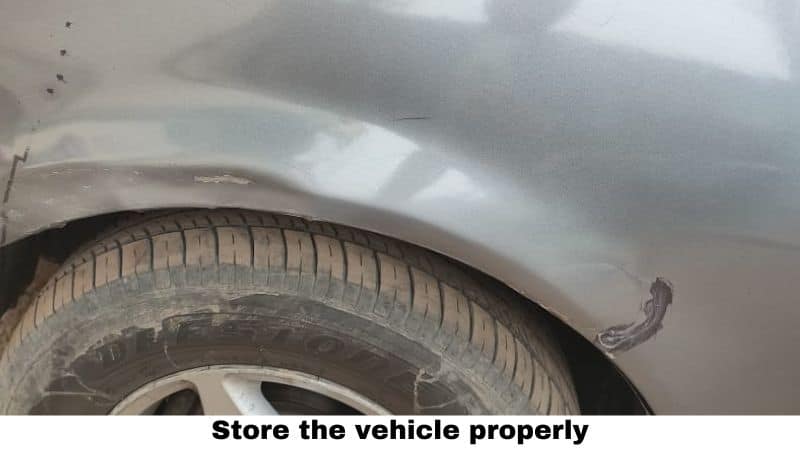Do you know that fresh engine oil smell? Well, over time that smell can fade as the oil oxidizes. Oxidation is a natural process that occurs when the oil is exposed to air, and it’s one of the main reasons why engine oil needs to be replaced regularly.
But what causes oxidation in engine oil? And how can you prevent it? In this article, we’ll discuss the various causes of oxidation in engine oil, as well as some tips on how to reduce the risk of oxidation.

The Reasons that Cause Oxidation in Engine Oil
Oxidation is a natural process that occurs in engine oil over time, causing it to break down and become less efficient. It can be caused by different factors. Check out some reasons that cause oxidation in engine oil:
High Temperatures
One of engine oil’s most common causes of oxidation is high temperatures. When the oil gets too hot, the molecules start to break down, leading to many problems. Every 18ºF (10ºC) increase in temperature doubles the rate of oxidation.
When the oil oxidation temperature gets high, it can also start to oxidize. This is why it’s important to keep your oil topped up so that the oxygen doesn’t have a chance to get to it.
Exposure to Oxygen
Exposure to oxygen is another notable cause of oxidation in engine oil. When the oil is exposed to oxygen, it starts to break down and form sludge. This can cause all sorts of problems for your car, including decreased performance and increased wear and tear.
To help prevent oxidation, it’s important to keep your engine oil clean and free from contaminants. Make sure to change your oil regularly and keep up with your car’s maintenance schedule.
Contamination
Engine oil can become contaminated with various impurities such as dirt, dust, and metal particles, which can act as catalysts for the oxidation process. This can come from several sources, including:
- Particles of dirt and debris
- Fuel and oil leaks
- Moisture, such as rain or snow
- Rust and corrosion
These contaminants can cause the oil to heat up and break down, leading to oxidation and all the problems that come with it.
Moisture
Moisture is also a key factor that contributes to oxidation. For example, when starting the car in cold climates, condensation can easily form inside the engine and mix with the oil, leading to its oxidation.
As your engine reaches high temperatures, moisture is also released from combustion. It then mixes with the oil and slowly breaks it down. In extreme cases, water can even cause sludge to build up in your engine.
To minimize moisture-induced oxidation, make sure you check your oil level regularly with an oil dipstick and keep the levels topped off. You also need to avoid running your car for extended periods in idle mode; this causes a significant amount of moisture to be created inside the engine.
Also, make sure to observe the manufacturer’s guidelines for oil change intervals; if done more often than recommended, you’ll prevent oxidation caused by oils that have passed their usable lifespan as well as avoid major problems in the long term.
Oil Age
The age of the oil will also affect its stability. Over time, the oil will degrade due to multiple factors such as oxygen, moisture, and heat. Oil ages when it’s exposed to oxygen, which starts a chain reaction that results in the breakdown of the molecules in the oil. This creates a by-product called sludge, which can clog up your engine and cause corrosion.
When it comes to oil, fresh is always best. As your oil ages, it loses its lubricity, and its ability to protect your engine from wear and tear decreases. So make sure you routinely monitor and change your engine oil regularly to avoid any issues down the line!
Read: Overdue Oil Change Symptoms
How to Prevent Engine Oil Oxidation
Your engine oil is essential to keep your car running smoothly, so it’s important to keep it in good shape. Unfortunately, engine oil can become oxidized over time, reducing its effectiveness. Oxidation can occur due to high temperatures and exposure to air, leading to a decrease in lubrication and an increase in sludge. To make sure your engine oil stays in the best shape possible, here are some important tips for preventing oxidation:
Regular oil changes
One of the best ways to prevent engine oil oxidation is to change the oil at the recommended intervals. This ensures that fresh, clean oil is always circulating through the engine and prevents contaminants and byproducts from building up.
Use high-quality oil
Using high-quality oil that is specifically formulated for your vehicle will help prevent oxidation. Look for oils that are labeled as “synthetic” or “synthetic blend,” as these types of oils are typically more resistant to oxidation.
Avoid prolonged idling
Prolonged idling causes the engine to run at a low temperature, which can lead to increased oxidation. Try to avoid idling for long periods, and if you must idle, do so for as short a time as possible.
Drive at moderate speeds
High-speed driving can generate a lot of heat in the engine, which can cause the oil to oxidize more quickly. Try to drive at moderate speeds to keep the engine temperature at a more stable level.
Keep the engine clean
A dirty engine can cause the oil to become contaminated, which can lead to oxidation. Make sure to keep the engine clean by regularly washing it and removing any built-up grime or dirt.

Store the vehicle properly
If you’re going to be storing your vehicle for an extended period, make sure to take steps to protect it from oxidation. This may include adding a fuel stabilizer to the gas tank, removing the battery, and covering the vehicle to protect it from the elements.
By following these tips, you can help prevent engine oil oxidation and ensure that your vehicle runs smoothly and efficiently for years to come.
Frequently Asked Questions
Q. Why is oxidized oil bad?
Oxidized oil is bad because it can degrade the performance and efficiency of a motor. Oxidation occurs when oil reacts with oxygen, forming molecules that can break down the oil’s molecules, reducing its viscosity and allowing it to become thicker and more acidic. This can cause increased friction between moving parts and potentially cause motor failure.
Q. What happens when oil is oxidized?
When oil is oxidized, it undergoes a chemical reaction with oxygen to form new compounds. Oil oxidation can lead to forming organic acids, aldehydes, hydrocarbons, and other compounds. Oxidation of oil can cause it to form a solid residue, darken in color, and lose its lubricating properties. In extreme cases, oxidation of oil can cause it to catch fire or even explode.
Q. Does engine oil oxidize?
Yes, engine oil can oxidize. Oxidation of engine oil is a natural process that occurs over time. It can be accelerated by high temperatures and long periods between oil changes. Oxidation causes the oil to break down, creating sludge and other contaminants, which can lead to engine problems.
Conclusion
Oxidation of oil reaction in engine oil can be caused by a variety of things. In this article, we try to mention all those things that cause oxidation in engine oil and some other tips to prevent engine oil oxidation.
If you’re noticing that your engine oil is oxidizing more quickly than usual, it’s important to determine the cause and take steps to address it.
